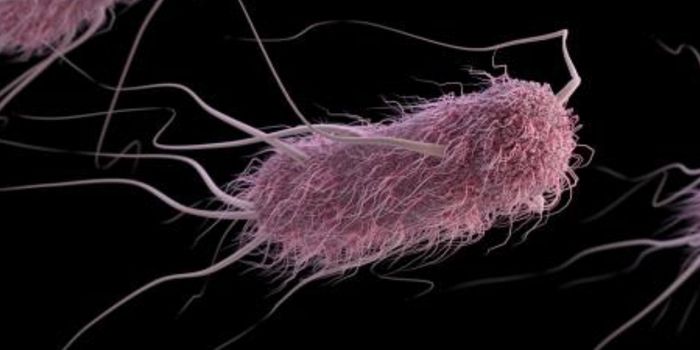Bacteria and an Immune Molecule Influence Preterm Birth
Babies that are born before 37 weeks of gestation are considered premature. About one in ten babies in the United States are at risk, and that rate has been increasing in the past few years, according to the Centers for Disease Control and Prevention. The World Health Organization notes that spontaneous preterm birth (sPTB) is a major factor in infant death. Researchers have been looking for various ways to identify women at risk of sPTB and treatments to reduce it. Now researchers have shown that the microbes and immune molecules in the cervix and birth canal are impacting the risk of sPTB.
This research may have critical implications for women and babies. The findings, which have been reported in Nature Communications, can help physicians identify who is at risk of preterm birth and prevent it from happening. The study, by researchers at the University of Maryland School Medicine (UMSOM) and the Perelman School of Medicine at the University of Pennsylvania, also outlines a strategy for classifying bacteria as protective or harmful.
In this work, 2,000 pregnant women donated vaginal swabs at different times during their pregnancies, and the researchers identified the microbes in the ‘cervicovaginal microbiota’ of these women. They found that seven bacteria were connected to an increase in the risk of sPTB, and that influence was stronger in African-American women. The researchers also observed that an antimicrobial molecule that is part of our immune system, peptide β-defensin-2, reduced cervicovaginal microbiota-associated sPTB, in an ethnicity-dependent way.
"Predicting prematurity has been a riddle that has troubled researchers and clinicians for years, but we are finally shedding light on a path toward offering treatment to women we can identify as being at risk. Previous studies, including ours, were limited by low sample size. In establishing this large cohort, we aim to identify factors early in pregnancy that could be used to predict the risk to spontaneous preterm birth," said the co-senior author of the study Jacques Ravel, Ph.D., Director of Genomics at the University of Maryland School of Medicine.
Babies that get through a preterm birth face a host of other problems including an increased risk of vision loss, intellectual delays, and breathing problems. The ramifications of preterm birth are thought to cost $26 billion per year in the United States, according to estimates by the National Academy of Sciences.
“The results of this study give us a break we’ve been working toward for many years. Previous research suggested that the cervical vaginal microbiome is different in women who experience preterm birth but those studies had small numbers of women and were not conclusive. With this large cohort, for the first time, we’re actually able to show the specific microbial signatures that are involved in preterm birth,” said the lead study author Michal Elovitz, MD, a professor Obstetrics & Gynecology at Penn Medicine.
The study opens up new therapeutic avenues that can reduce the number of preterm births, such as molecules that target the immune system or drugs that alter the microbiome.
"While there is known racial disparity in preterm births with African-American women having significantly higher rates than non-African American women, factors that underpin this disparity have remained elusive," said UMSOM Dean E. Albert Reese, MD, Ph.D., MBA.
Learn more about the vaginal microbiome from the video above, featuring Jacque Ravel.
Sources: AAAS/Eurekalert! via UMSOM, Penn Medicine, Nature Communications









